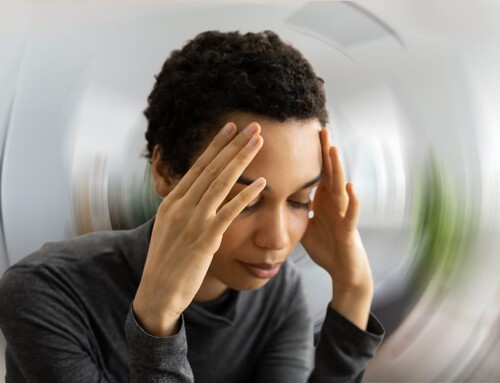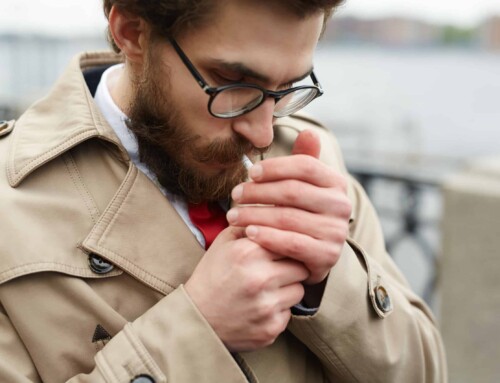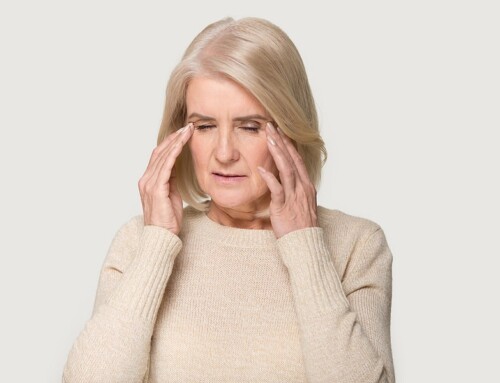Table of Contents
Here at Upper Cervical Hawaii, our team has met not one but quite a lot of people seeking vertigo relief in Honolulu. Many of our patients live with Meniere’s disease, which can result in vertigo and hearing issues. Most of them ask us questions like “How did I get Meniere’s disease?” or “What should I do to stop the spinning?” Today, we’ll answer these questions and more.
What is Meniere’s Disease?
Before we touch on the diagnosis of Meniere’s, let’s define and describe this disorder first. Meniere’s disease (idiopathic endolymphatic hydrops) usually occurs when the inner ear fills up with fluid. A healthy amount of inner ear fluid is important to maintain our sense of balance and hearing. But when the ears could not drain or retain fluid due to issues, symptoms might follow.
People with this condition often experience ringing ear syndrome (tinnitus), ear fullness, and vertigo episodes. Meniere’s disease episodes can also involve hearing loss and discomfort in one ear. Hearing problems in both ears are common in 15% of individuals with Meniere’s.
How Is Meniere’s Disease Diagnosed?
Meniere’s is not to be taken lightly as the disorder can cause severe hearing damage. An example of Meniere’s is the recent diagnosis of the singer Jessie J. The Price Tag singer had no idea of Meniere’s until she was diagnosed and lost her ability to hear in her right ear.
Before diagnosing Meniere’s disease, physicians use different examinations, such as imaging and hearing tests. They also try to investigate by getting to know from patients their health and medical history leading to the onset of the symptoms. Proper diagnosis is vital in getting relief from any type of illness.
In 2015, researchers established the “International” diagnostic criteria for Meniere’s disease. These criteria divide Meniere’s into two categories— definite and probable.
You might have definite Meniere’s if you deal with hearing loss in the entire span of an episode, including the period before and after the hearing impairment. You should also experience at least two vertigo attacks that last between 20 minutes to 12 hours. Yours might have the probable Meniere’s if you experience at least two dizzy spells or vertigo episodes for 20 minutes to a whole day.
To learn more about the connection between head and neck injuries and vertigo download our complimentary e-book How to Naturally Relieve Vertigo without Drugs by clicking the image below.
What Causes Meniere’s Disease?
Doctors say that Meniere’s may arise from two things— excess inner ear fluid and a health condition. As mentioned above, excess inner ear fluid may indicate Meniere’s. Allergies, viral infections, and compressed blood vessels might affect the ear’s fluid production and drainage.
People looking for vertigo relief in Honolulu also should know about the risk factors for Meniere’s. It does not matter whether you are a man or a woman; Meniere’s disease does not see gender when choosing its victims.
Age is usually a factor when it comes to hearing issues among Meniere’s patients. This condition is generally diagnosed among individuals who are 20 to 50 years old.
Genetics might play in the spread of this disorder. Many patients with Meniere’s disease report having parents or relatives with the same condition.
Now that you learned about the potential causes and risk factors in developing this disorder, let’s discuss some do’s and don’ts to improve Meniere’s
Don’ts In Dealing with Meniere’s Disease
Don’t Eat Salty Foods
Have you experienced feeling bloated after eating salty food? Too much salt is another common culprit to fluid retention in the body. We advise those looking for vertigo relief in Honolulu that limiting their salt intake can improve the fluid drainage in their ears.
Don’t Smoke or Drink Too Much Coffee
Nicotine and caffeine are aggravators of Meniere’s disease symptoms, including vertigo. If you don’t want to make your condition worse, consider cutting out smoking from your routine– you’ll feel better, and your body will thank you for it. If you cannot get rid of coffee, you might want to limit your intake.
Don’t Eat Inflammatory Foods
Inflammatory foods containing sugar, alcohol, and refined carbohydrates can impact the blood vessels in your inner ear. Therefore, refrain from consuming these food items as much as possible.
Don’t Use Food Additives
Foods with additives such as sugar alternatives and monosodium glutamate (MSG) can trigger Meniere’s disease episodes. Try to avoid processed foods like cured bacon and canned, bottled, or packaged foods. Instead, eat healthy and fresh.
Do’s In Dealing with Meniere’s Disease
Do Drink Enough Water
Keeping yourself hydrated, especially during hot seasons, can help regulate the fluid levels in your inner ear.
Do Keep a Balanced Diet
Eating fresh and healthy while avoiding trigger foods can help you deal better with your condition. In addition, controlling the foods you eat (lowering your sodium and caffeine intake) might encourage healthy fluid production in your inner ear.
Do Activities for Stress-Relief
Stress is a culprit for several health conditions, including Meniere’s. Stress can also intensify the symptoms you are already experiencing. If possible, always de-stess by doing activities that promote stress relief. We encourage our patients looking for vertigo relief in Honolulu to try out yoga, walking, reading, gardening, drawing, or any other relaxing activity that can lower their stress levels.
Do Get Help from an Upper Cervical Chiropractor
Neck misalignments may develop over time or occur right after an accident. These neck misalignments often lead to excess pressure on the blood vessels and nerve pathways. As a result, our brains may send and receive scrambled messages, prompting the onset of Meniere’s. Fortunately, upper cervical chiropractors can correct the misalignments and reverse their effects.
Upper Cervical Chiropractic for Meniere’s Disease
Meniere’s disease symptoms and vertigo can persist for 20 minutes to 24 hours. One session of upper cervical chiropractic adjustments is much shorter than this timeframe. And you can already experience a significant change in your condition.
Here at Upper Cervical Hawaii, you can find comfort from vertigo and other Meniere’s disease symptoms. Our chiropractor, Dr. Breuwet, has successfully corrected hundreds of neck misalignments and improved hundreds of lives. You can check out what our patients think about upper cervical chiropractic care here.
If you want to know more about the gentle and precise techniques used in upper cervical chiropractic care, schedule an appointment with Dr. Breuwet today. Call us at 808-201-1324 or fill out our contact form.
To schedule a consultation call 808-201-1324 or simply click the button below.
 If you are outside of the local area you can find an Upper Cervical Doctor near you at www.uppercervicalawareness.com.
If you are outside of the local area you can find an Upper Cervical Doctor near you at www.uppercervicalawareness.com.





